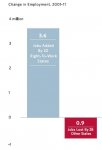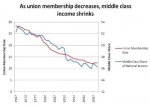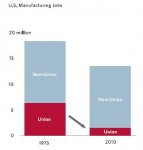- Joined
- Jun 7, 2012
- Messages
- 14,761
- Reaction score
- 10,703
- Location
- Western Mass.
- Gender
- Male
- Political Leaning
- Progressive
I think that the last 3+ years have shown that compromize means taking on R's concepts & having the R's condem the concept as being inspired by the Devil Herself i.e. Government Mandate.
If compromize is to mean adopting R's princibles, I say lets (D's) start sticking to our position for a change. That would be a change, D's supporting Democratic positions.
In other words effe compromise with the R's while we live under minority rule. eace [/FONT]
eace [/FONT]
If compromize is to mean adopting R's princibles, I say lets (D's) start sticking to our position for a change. That would be a change, D's supporting Democratic positions.
In other words effe compromise with the R's while we live under minority rule.
I certainly agree that both sides, at every level of government need to sit down and do the work. This will require hard stands at times, but also compromise. In fact, I would like to see more compromise. Much more.
Last edited:



